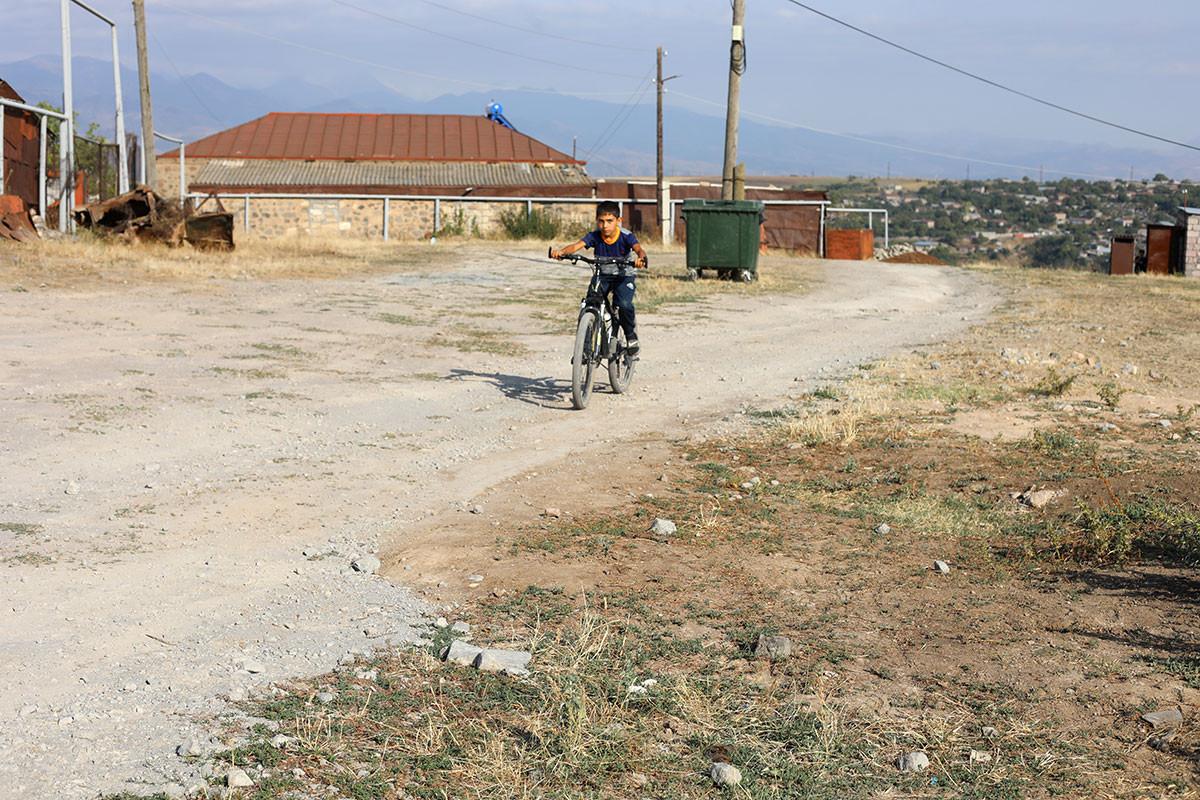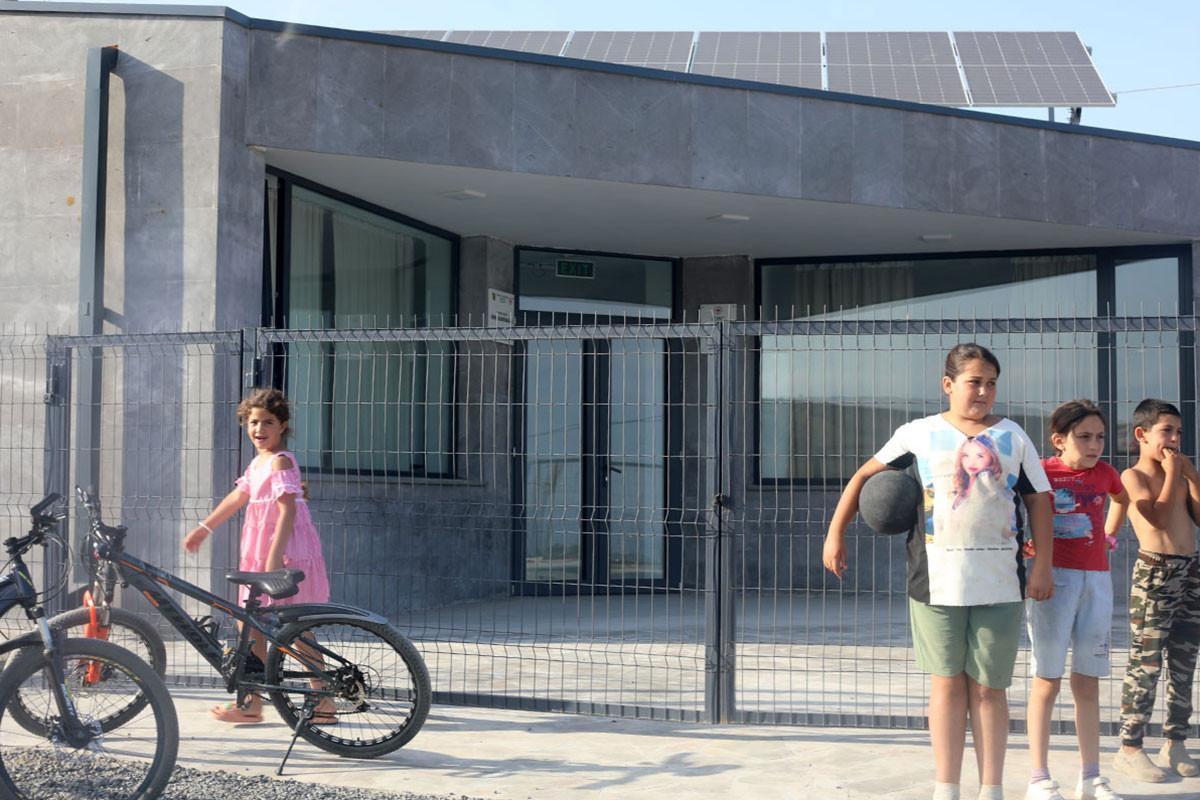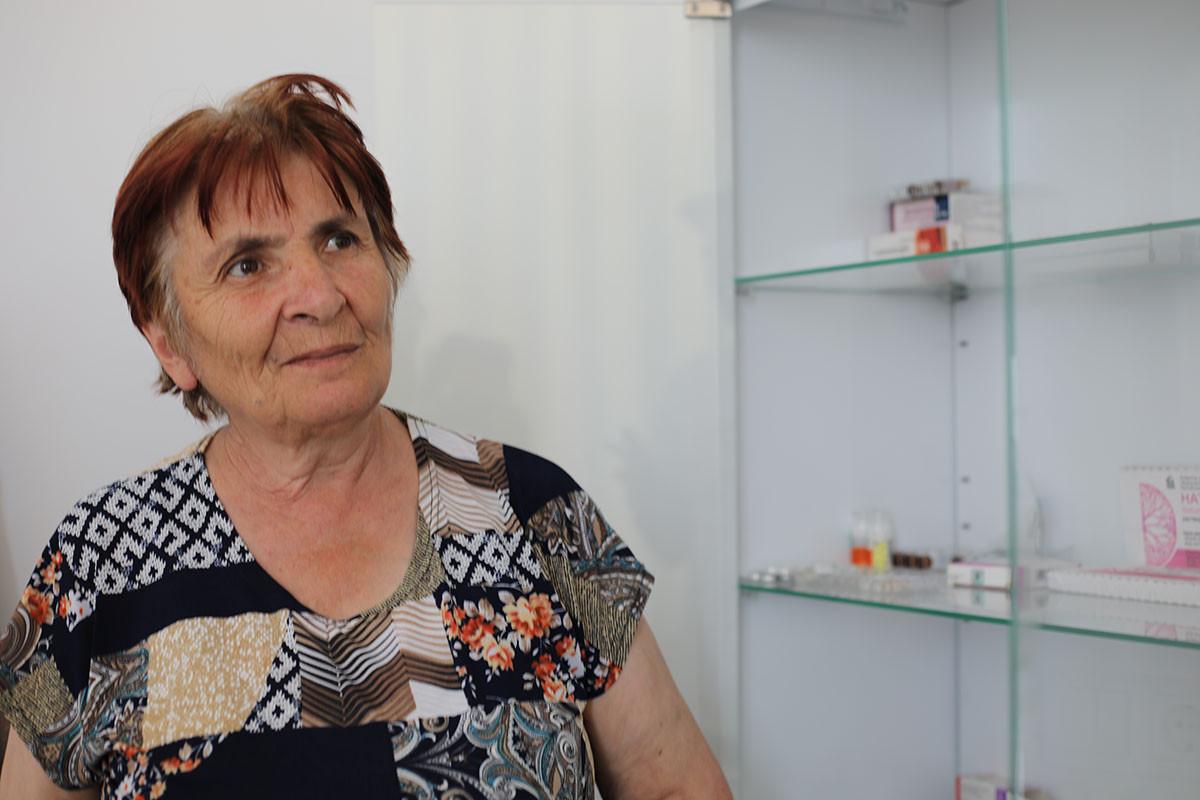
Aravus Village Residents Cope with Stress, Unemployment on the Azerbaijani Border
On the night of November 30, 2020, Yelena Hayrapetyan plucked a bunch of roses from her garden in Kashatagh, Artsakh, wrapped them in a blanket, and tied them to the saddle of her horse.
Those were her last minutes in Kashatagh. Armenians were fleeing the province of the former Republic of Artsakh after Kashatagh had been handed over to Azerbaijan acording to the November 9 ceasefire agreement.
She had tied their nine horses with a rope and left their Kashatagh house with her husband. It was a chilly night. On the way, the horses’ rope got caught in a tree and snapped. They were unable to catch the horses and continued on their way without them.
Hayrapetyan and her husband reached Aravus, a village in the Tegh Municipality in Armenia’s Syunik Province, where they were born and raised. The morning after the exodus from Artsakh, people called her husband from the neighboring village of Khnatsakh, telling him that two of the horses were there.
Her husband had gone, taken the horses, and tied them in a garden in the evening, fed them barley, and gone to their rented cabin. But, in the morning, they saw that the horses were gone. Hayrapetyan says the animals were stolen. Now, the couple lives with their dog and three cats and rejoices in the harvest from the small garden in front of the house. They pay AMD forty thousand a month for the cabin.
Yelena Hayrapetyan used to work as a teacher in Aravus. Holding one of the white roses from the garden, she reminisces about those days. She says that despite her retirement age, she will still work now if offered a job. “When September comes, my tears come with it,” she tells me.
She looks at the rosebush again. Even though there are days when the village has no water, they collect it when they can and store it to water their small garden.
“I get up every morning and talk to my roses. Look at how many buds there are on one bunch. Today I called my husband and told him, “Valerik, come and see how many buds there are.”
"I have never seen anything like this on roses,” says Hayrapetyan, adding, “If I could, I would wrap Artsakh in a blanket and bring it here, like the roses.”
After the war, the number of people with high blood pressure in Aravus has increased. Hayrapetyan also often goes to the nearby health center. The only employee there is nurse Sirvard Balayan.
The health center used to be in the village school. Balayan says the school had allocated some space for the health center and the villagers used it.
Last April, with the support of the Armenian delegation of the International Committee of the Red Cross (ICRC), a feldsher-midwifery post (FMP) was opened in Aravus.
Balayan says it’s well equipped with all the essentials.
She notes that the only thing needed now is a janitor. Balayan now works as a nurse and cleaner.
“People mainly come for blood pressure issues and allergies,” Balayan says, adding that there are no births in Aravus.
Balayan, working as a nurse since 1982, notes that young families need jobs to stay in the village, otherwise they leave.
There are nine pupils in the village school. Balayan says the Syunik Province administration wants to close it. “Why close it? People work there,” she points out.
Balayan says the permanent population of Aravus, 600 meters from the border with Azerbaijan, is some 140. Periodic gunfire from the Azerbaijani side had rattled Aravus residents, putting them on edge. The last such incident occurred a month ago.
The nurse says the gunfire forced most in the village to stop raising cows as their main source of income. Farming is also tough given a lack of water. Then too, water for drinking isn’t supplied on a regular basis.
“Young people are mostly in the militia. If not, many families have left” says Balayan, noting the lack of employment opportunities.
Every working day, at 9 am, Balayan opens the door to the medical center as usual, but her working day does not always start at that time. On the day of our visit, at 7 am, one of the village residents had become unwell, and the nurse went to measure his blood pressure.
Sirvard Balayan is on call, 24/7, for her Aravus neighbors.
 Videos
Videos Photos
Photos




Write a comment